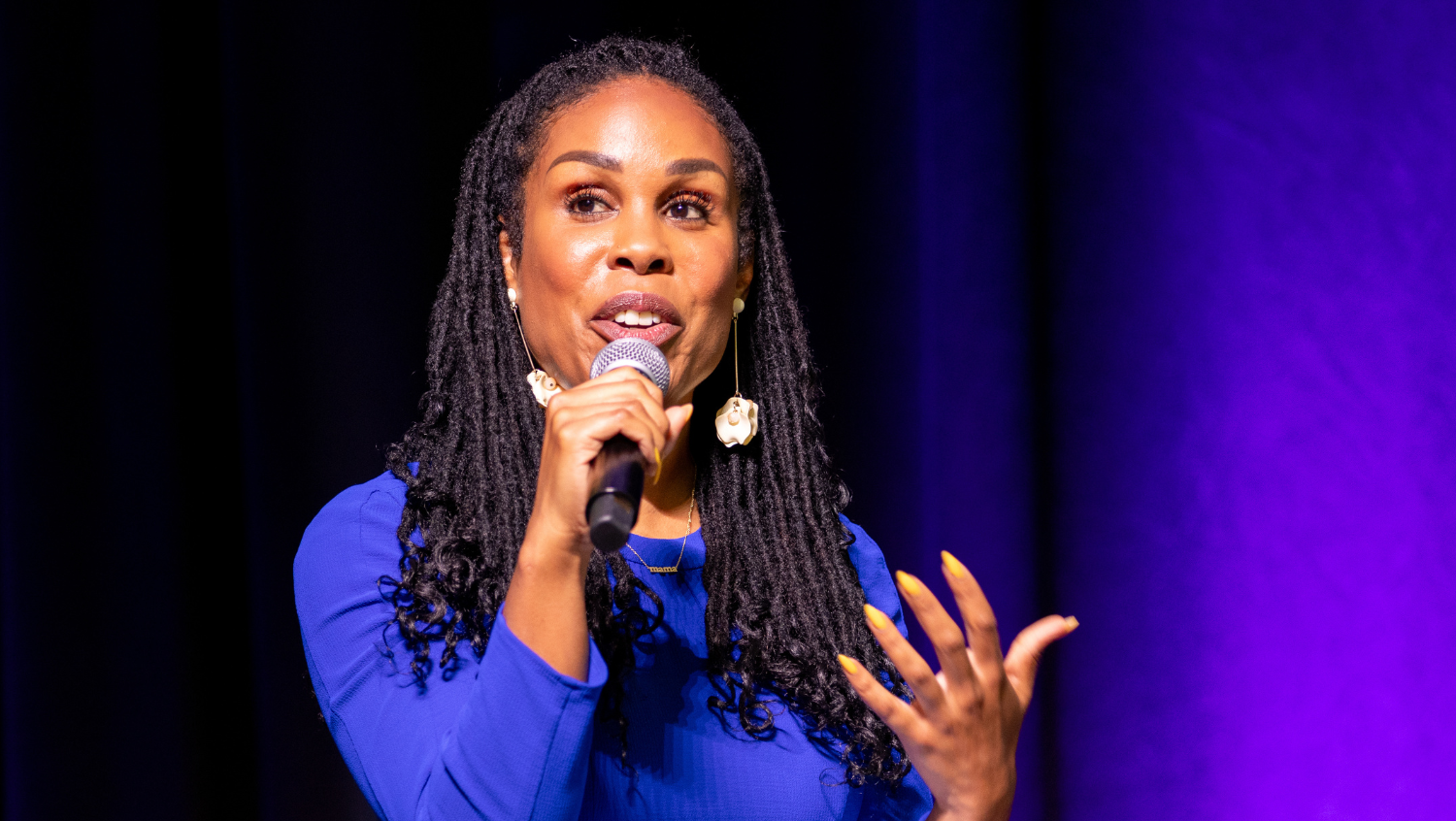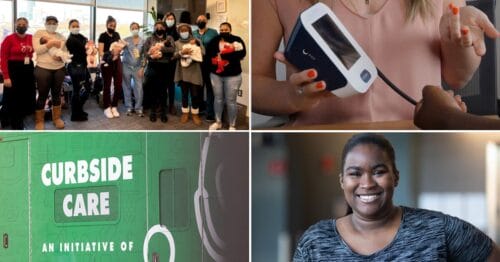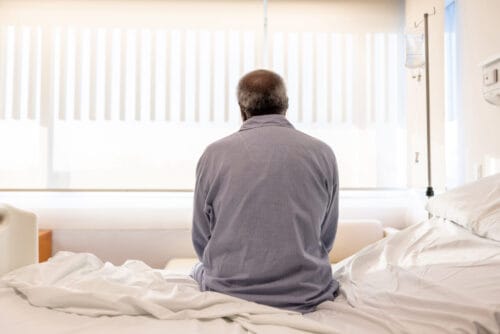A Health Equity Trailblazer Shares Her Own Story of Medical Gaslighting
February 7, 2024
By Caitlin White, By Katie Dillon

Boston Medical Center
Uché Blackstock, MD, speaking at EQTY 2023: A Summit for Health Justice in September 2023 (Jeff Fernandes, Boston Medical Center).
Uché Blackstock, MD, shared her story with Congresswoman Ayanna Pressley at a BMC Health System talk to commemorate Black history month.
In celebration of Black History Month, Boston Medical Center Health System hosted a conversation between Uché Blackstock, MD — a prominent thought leader on bias and racism in healthcare and author of the New York Times best-seller Legacy: A Black Physician Reckons With Racism in Medicine — and Congresswoman Ayanna Pressley from Massachusetts’ 7th district, and the first woman of color elected to Congress from the Commonwealth.
The entire conversation, which took place over Zoom on Tuesday, February 6, delved into Blackstock’s expertise as an emergency room physician and expert in health equity. She shared a personal story with the Congresswoman and the audience about her own experience with medical racism and gaslighting. The story appears in her new book, and it centers on a time she visited the emergency room with extreme abdominal pain, only to be turned away by providers
Blackstock is a prominent voice in calling for racial health equity, using her prior experience as an emergency room physician and as an associate professor of emergency medicine at New York University. Since she was first elected to Congress in 2018, Pressley has sponsored and co-sponsored bills including the “Anti-Racism in Public Health Act of 2023,” which was introduced in April of last year. She is also an advocate for reproductive justice and survivors of sexual assault. Later in the conversation, Blackstock was joined by BMCHS vice president of Mission Thea James, MD, MBA, and the two connected on their experiences as emergency department physicians.
Below is an excerpt from the event.
Congresswoman Ayanna Pressley: “Individuals from marginalized communities are consistently subjected to medical gaslighting when experiencing pain. You’ve personally experienced this during a painful case of appendicitis. Can you speak to how systemic inequities in our healthcare system impact the ways in which you seek and receive care?”

Uché Blackstock, MD
“[It’s an experience] that I write about in my book, about when I had appendicitis as a first-year medical student. I ended up going to the ER three times and was turned away the first two times. I was questioned about how much pain I was in. I was asked repeatedly about my sexual activity. The providers seemed suspicious about my responses. And so I ended up actually rupturing my appendix and missing a whole month of medical school.
And I remember I was there with my twin sister at each visit, and she even was in medical school with me and she said, “I think you have appendicitis.” But even as medical students, we didn’t feel empowered enough to even say that [to the ER doctors]. So you can imagine what the average Black patient feels like.
A lot of this medical gaslighting that you talk about — unfortunately for health professionals — is really deeply rooted in the history of our country, especially in terms of how it relates to pain. We know about figures like J. Marion Sims, the father of modern gynecology, who made really important discoveries and inventions — but did so in a horrific way on enslaved Black women, not using any local anesthetic even once local anesthetic had been discovered. But again, this [mindset is] based on racial and biologic essentialism, that Black people that we don’t feel pain. A lot of those deeply rooted myths and misconceptions have been absorbed [across this] country, and our health professionals are unfortunately no different.
Even in 2016, there was a study at University of Virginia where they gave two mock cases to medical students in residence — a Black patient and a white patient — and asked them to rate the patient’s pain then recommend pain treatment for the patient. Those medical students in residence consistently underrated the Black patient’s pain and gave them lower doses of pain medication. [The study also asked the residents to rate the extent to which biological difference among Black and white patients were true or untrue.] Those who underrated pain were more likely to believe in false myths that Black people’s skin was thicker, that we’re less sensitive to pain…And that’s 2016.
That unfortunately results in what we call pain inequity. When we go to health professionals and we say we’re having discomfort or we’re having pain, often — and this is not just anecdotal, it’s in the data — Black patients are dismissed or ignored. What that leads to is 1) misdiagnoses, delayed diagnoses, harm, and even death. But also what it results in is Black patients being less likely to want to seek care when they need it.
We call that a high burden of unmet needs in our community — that when we do have to seek care, we are less likely to do so because we don’t think that we’re going to receive quality culturally responsive healthcare.


